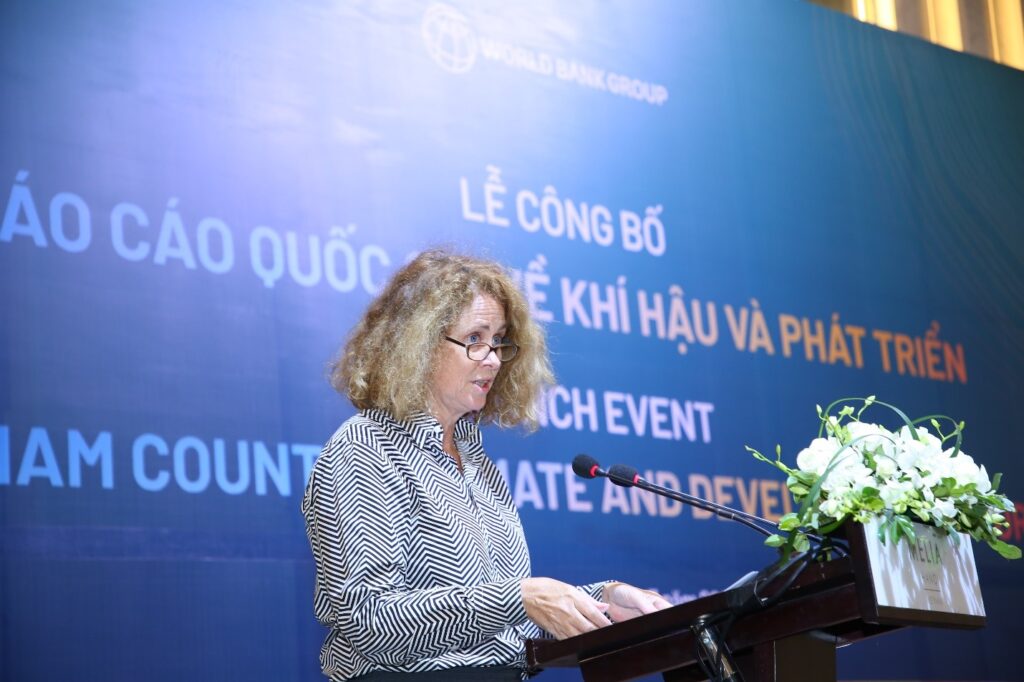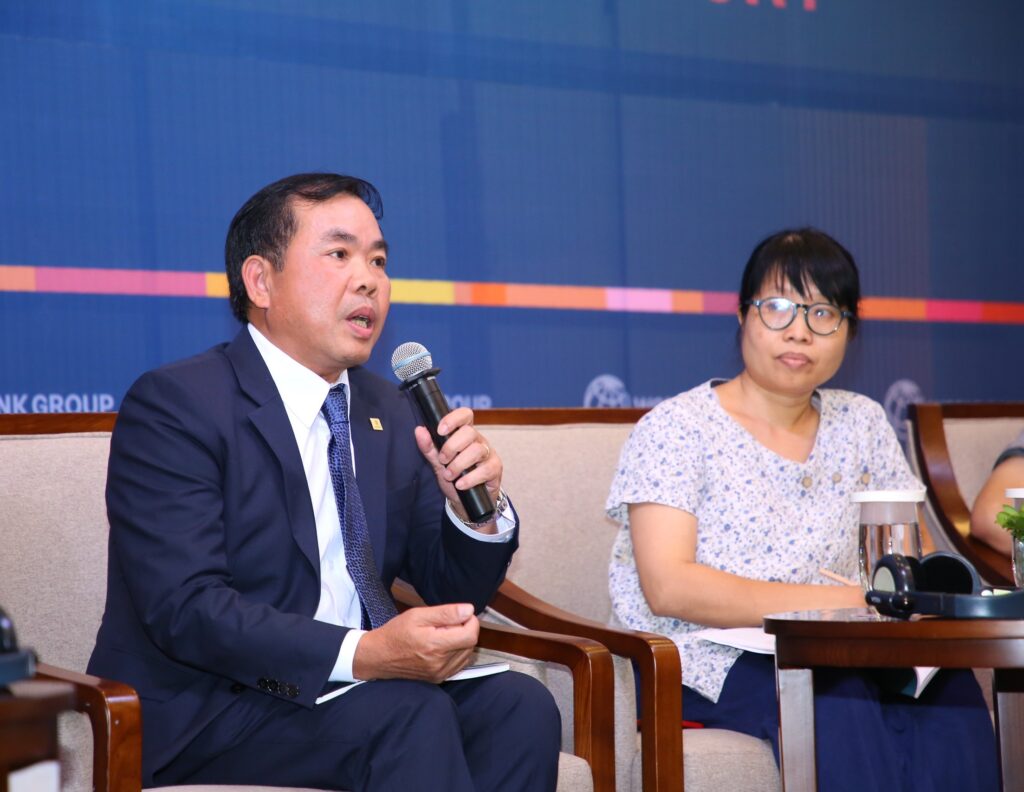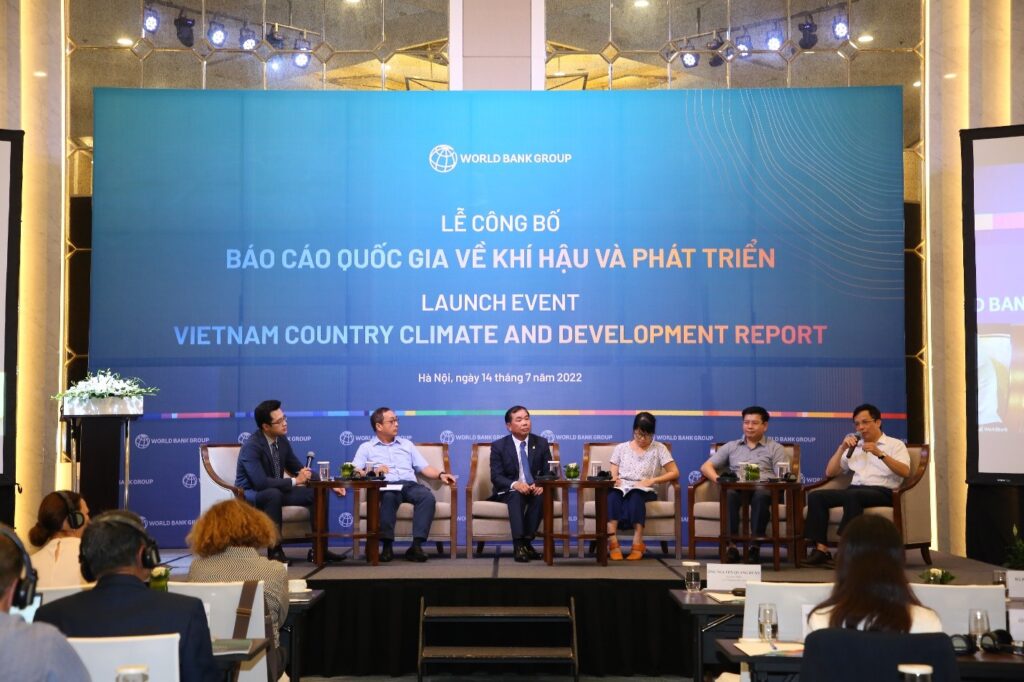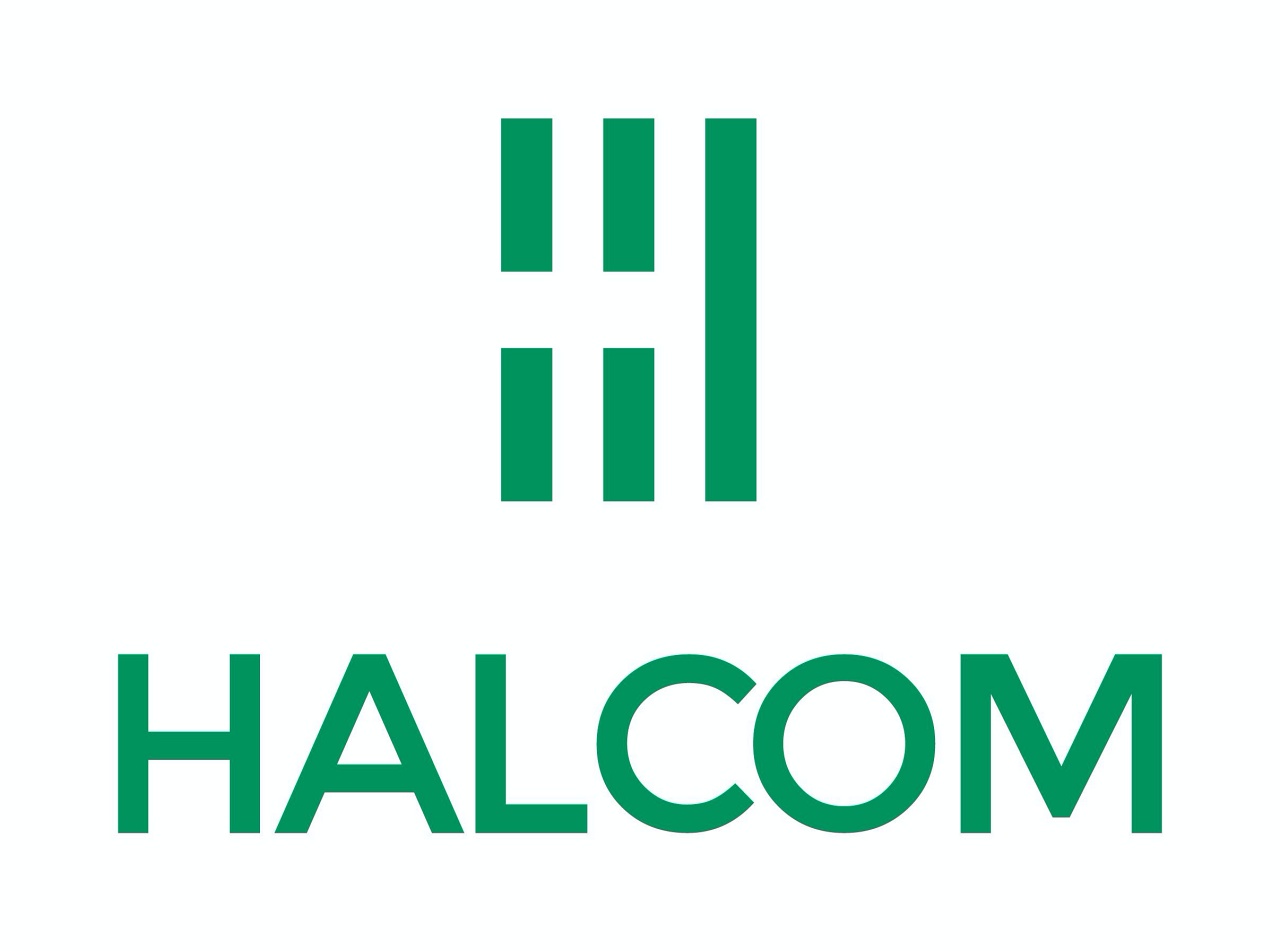On the afternoon of July 14, 2022, in Hanoi, World Bank Group held a launch ceremony for Country Climate and Development Report (CCDR) for Vietnam. Mr. Nguyen Quang Huan, Chairman of the Board of Directors of Halcom Vietnam Joint Stock Company, attended as a panelist representing the private sector in the discussion session.
This is one of the first in a series of country-level reports on climate and development prepared by the World Bank Group. The report underscores the urgency of climate change adaptation; proposes Vietnam to transform its development paradigm by taking actions on two critical pathways: resilience pathway and decarbonizing pathway. However, in order to implement the roadmaps for climate-adaptive development and net zero emissions, it is expected that Vietnam will need to invest a cumulative 368 billion USD through 2040 at current value. Accordingly, offsetting funding shortfalls related to decarbonizing and adaptation response establishment will require a reallocation of savings from the domestic private sector to climate-related projects, increasing public sector savings and mobilizing external financial support.


According to the report, to fulfill Vietnam’s adaptation and mitigation goals, five priority policy packages require Vietnamese State’s immediate attention, including: A coordinated regional program for the Mekong Delta; An integrated plan to shield coastal urban areas and transport links from extreme weather; A program to reduce air pollution clogging the Hanoi area; Acceleration of the clean energy transition; A new social contract to protect the most vulnerable people.
Contributing at the ceremony, Mr. Nguyen Quang Huan said that one of the first solutions to help the private sector realize the goal of climate change adaptation is to improve awareness. “Enterprises who want to take the joint actions need to share the common awareness, must clearly recognize the pros of the net emission reduction target, as well as the cons of enterprises’ hesitation going green, even if Vietnam is not one among the top 10 net emitters in the world. At the macro level, the State also plays an important role in making long-term policies to help enterprises remove technology barriers, encourage green development, and support start-ups to apply the circular economy model. In addition, domestic enterprises also need to be instructed on how to implement technology transition, actively learn and exchange with foreign partners, in which way they can effectively promote the capital funded by international organizations.” – Mr. Huan commented.

Answering the question “Is it possible for wind power and solar energy compete with coal power if the latter still plays a major role in the energy structure?”, Mr. Huan said that the problem here is “replacing” rather than “competing”. And of course, we cannot switch from one energy structure to another in a short time period. Vietnam’s temporary solution of importing coal is not optimal for our energy security. Meanwhile, the cost and capacity of renewable energy is still unstable and must depend on baseload power generation. From Mr. Huan’s perspective, nuclear power has the potential to replace coal and hydroelectricity for baseload power generation, but whether this is a good direction for Vietnam requires consulting international experts and organizations from a technical and economic development angles.

Sources of news and images:
- World Bank Group’s Press Release: New World Bank Group Report Proposes Path for Vietnam to Address Climate Risks while Sustaining Robust Economic Growth
- The World & Vietnam Report: Climate change: Prioritize reducing carbon intensity to achieve the goal of becoming a high-income country
For further information:

